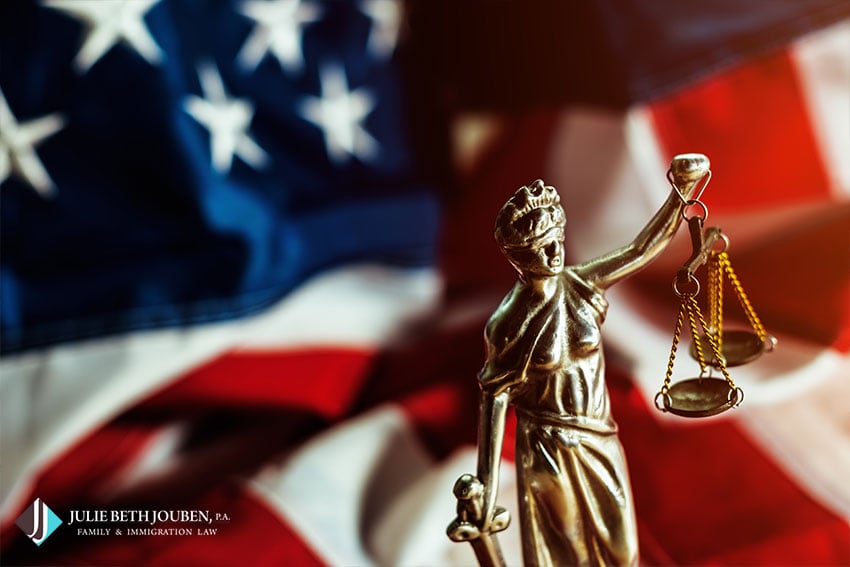
Will the Coronavirus Affect the Public Charge Rule?
Under U.S. immigration law, intending immigrants have had to prove that they will not become financial burdens on the United States for over 100 years. As of February 24, 2020, the method by which USCIS determines if someone may become a public charge changed. Under the new public charge rule, USCIS looks at the totality of the circumstances of the visa applicant’s life. Emphasis is given to the immigrant’s age, health, family status, financial status, assets, resources, education and skills. If they believe that a person is more likely than not to receive public benefits for more than 12 months within a 36-month period in the future, then that person may be denied their immigrant visa.
The public benefits that are considered are: Supplemental Security Income (SSI), Temporary Assistance for Needy Families (TANF), Medicaid for long term care, non-emergency Medicaid, Supplemental Nutrition and Assistance Program (SNAP), Section 8 Housing Choice Voucher Program, Section 8 Project-Based Rental Assistance, Public Housing and other state or local general cash assistance. These are benefits that are not available to most visa applicants anyway. However, many intending immigrants and their families have been concerned that receipt of any public benefit, even those not on the list, will reflect negatively upon their case. They have been refusing to utilize benefits that they need and which they are legally entitled to use.
What about the Coronavirus
Less than one month after the public charge rule went into effect, Coronavirus changed the way that we live in the United States, at least on a temporary basis. People are practicing social distancing. Businesses are closed. Many people are out of work for the first time and in need of government assistance. Intending immigrants and their family members are burdened by the additional concern that acceptance of any kind of assistance will affect their immigration case. USCIS has given some guidance as to how the Coronavirus will impact the public charge rule.
Medical Treatment
We are being advised to practice social distancing to avoid unnecessary exposure to COVID-19 so that we may flatten the curve. Those who are sick need to be treated and those who are exposed need to quarantine. USCIS has announced that testing, treatment and preventative care for Coronavirus will not be considered when evaluating a case under the public charge rule. Preventative care includes administration of a vaccine for COVID-19 if one does become available. Intending immigrants may receive Coronavirus treatment and other services even if it is provided by or paid for by federally funded Medicaid or one of the other public benefits listed under the rule without having a negative consequence when their visa application is evaluated.
Other Public Benefits
USCIS has also announced that a person who must temporarily utilize one or more of the public benefits listed in the public charge rule because of the Coronavirus will have the opportunity to offer statements with their applications. Intending immigrants who live and work in an area where social distancing or quarantine are in place will be able to explain how they were affected. If an applicant’s employer, school or university shut down to prevent the spread of COVID-19 and the applicant needs to utilize public benefits in order to get by during this difficult time, USCIS will take this into account when making a determination if the applicant will likely become a public charge.
Unemployment Insurance:
Unemployment Insurance is not a means tested public benefit. Each state determines its own eligibility criteria and benefit amounts while still following federal guidelines. If intending immigrants need to apply for unemployment benefits because they lose their job or were furloughed because of Coronavirus social distancing, they are able to do so.
Receipt of unemployment benefits should not have a negative effect when USCIS evaluates whether an intending immigrant will likely become a public charge. However, USCIS will look at the totality of the circumstances including the applicant’s financial status. If the applicant is unemployed at the time of filing the I-944 Declaration of Self-Sufficiency due to COVID-19, it may benefit to include a statement with the application.
Family Members
Public benefits received by the intending immigrant’s spouse, children or other family members are not considered when USCIS evaluates their case under the public charge rule. Family members should not hesitate to apply for the benefits that they need during the Coronavirus pandemic. Also, applicants can apply for SNAP or TANF benefits solely on behalf of their U.S. citizen children without it counting against them.
Contact Julie Beth Jouben P.A. to Learn More about the Public Charge Rule
At this point in time, there are still many unknowns with regard to the Coronavirus and the public charge rule. A Clearwater immigration attorney can help you understand how the rule will affect your application. At the law firm of Julie Beth Jouben, P.A., we can assist you in meeting the public charge requirements. Call Julie Beth Jouben, P.A. at our office and get the answers to your immigration law questions. Whether you have an issue obtaining your green card, bringing a family member to live in the United States, investing in a U.S. business from abroad, or naturalizing to become a U.S. citizen, we can give you the information that you need to make informed decisions.
